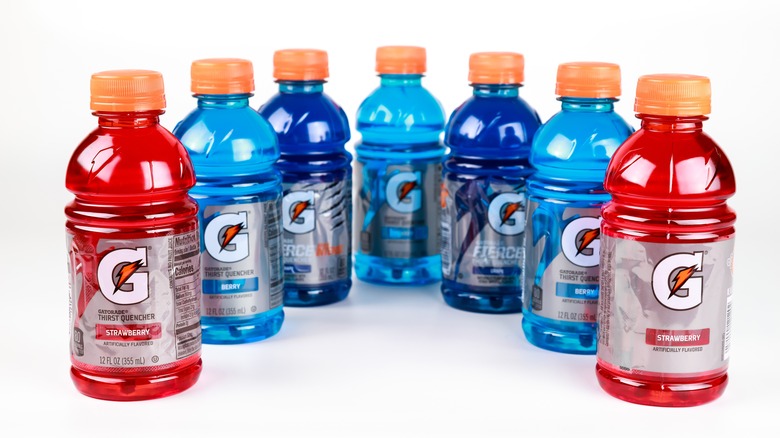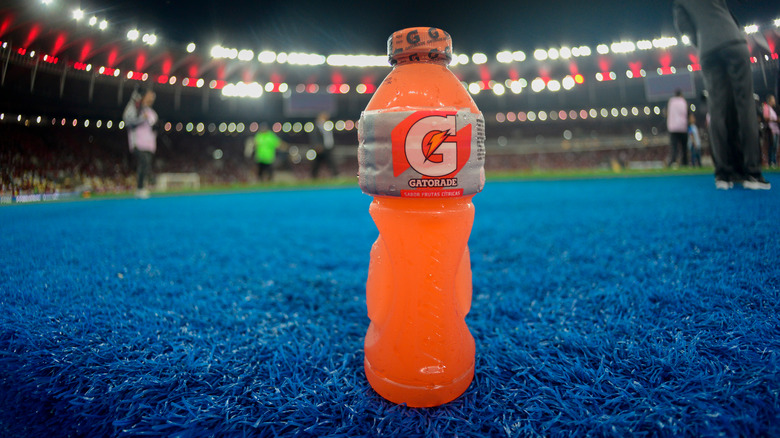The Reason Gatorade Is Banned In Some European Countries
CORRECTION 4/4/23: A previous version of this article stated yellow 5 and 6 have, in limited studies, been shown to cause tumors. The FDA has looked into this data and found the cancer risk for humans is too low to cause concern.
Most grocery stores in the U.S. have an aisle dedicated to sports drinks like Gatorade. It's easily recognized for its numerous flavors, bright colors, and orange lids and is often seen on soccer and football fields by athletes of all ages and even easily purchased in vending machines. The product promises things like rehydration and being packed with valuable nutrients. However, these promises may come at the cost of one's health — hence why in 2012, Gatorade was banned from many parts of Europe.
The company was forced to stop selling its products there because they contained brominated vegetable oil and Yellow 5 and 6, food additives that carry some serious health risks. These additives are used to create the various color combinations and flavors that Gatorade's products are known for offering. In response, the company has made changes in its European products over time.
Gatorade removed those banned ingredients in 2013, which allowed most of the ban to be lifted. However, Norway and Austria still do not allow the company's products on their shelves. What's the reason for this?
Gatorade contains ingredients that have potential health risks
The European Union took the big step to ban any type of food product containing brominated vegetable oil. This oil, used as an emulsifier, has been linked to nervous system complications as well as skin irritations, headaches, loss of muscle coordination, memory limitations, and fatigue. Japan also banned this ingredient, though the U.S. Food and Drug Administration has not. Once Gatorade removed that ingredient a year later, this allowed the product to get back into mainstream Europe in most areas. The company signed a sponsorship with the local soccer team that year to get back into the limelight.
Gatorade was also banned due to the presence of Yellow 5 and 6, which are artificial ingredients banned in the European Union in all food produced for children. While foods in most of the European Union containing these ingredients must be labeled, Norway and Austria still prohibit them. Both can cause allergic reactions in some people, and both contain benzidine 4-amino-biphenyl, which is considered a carcinogen.

